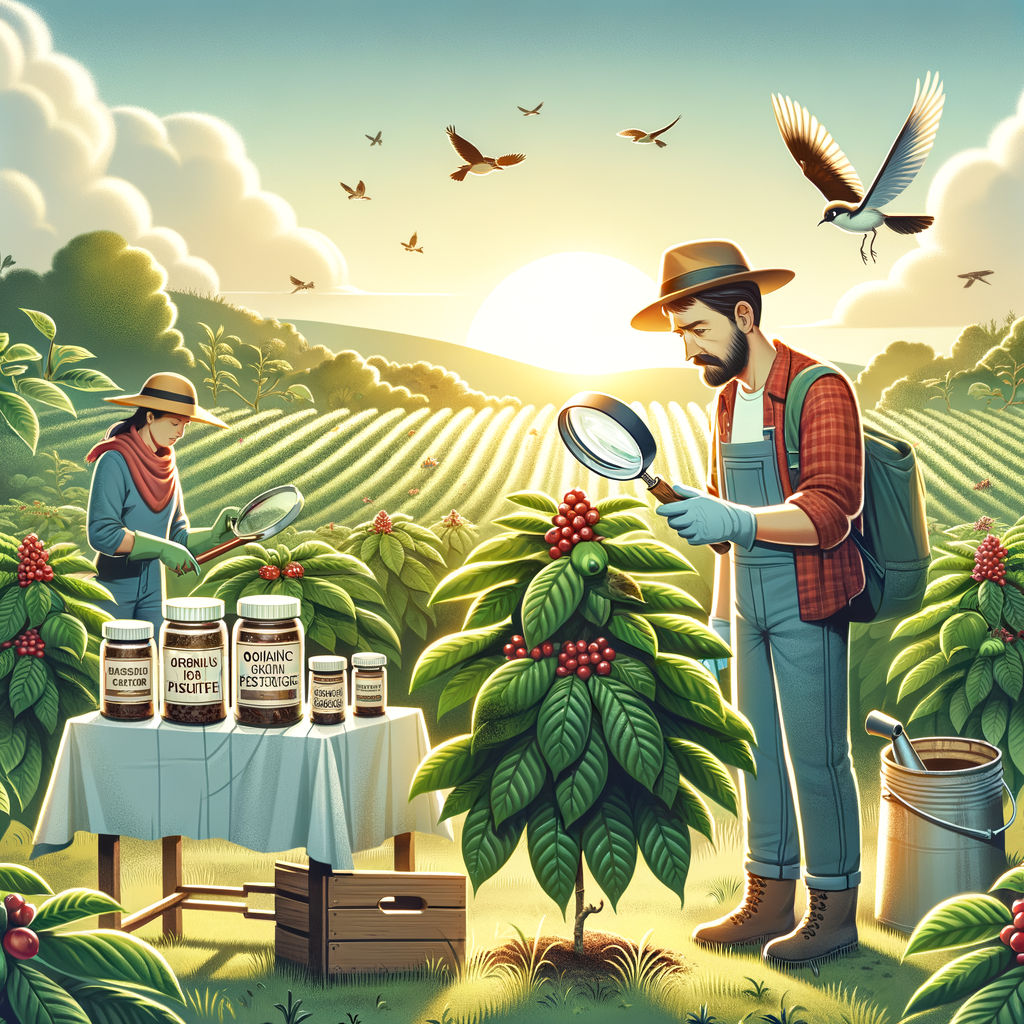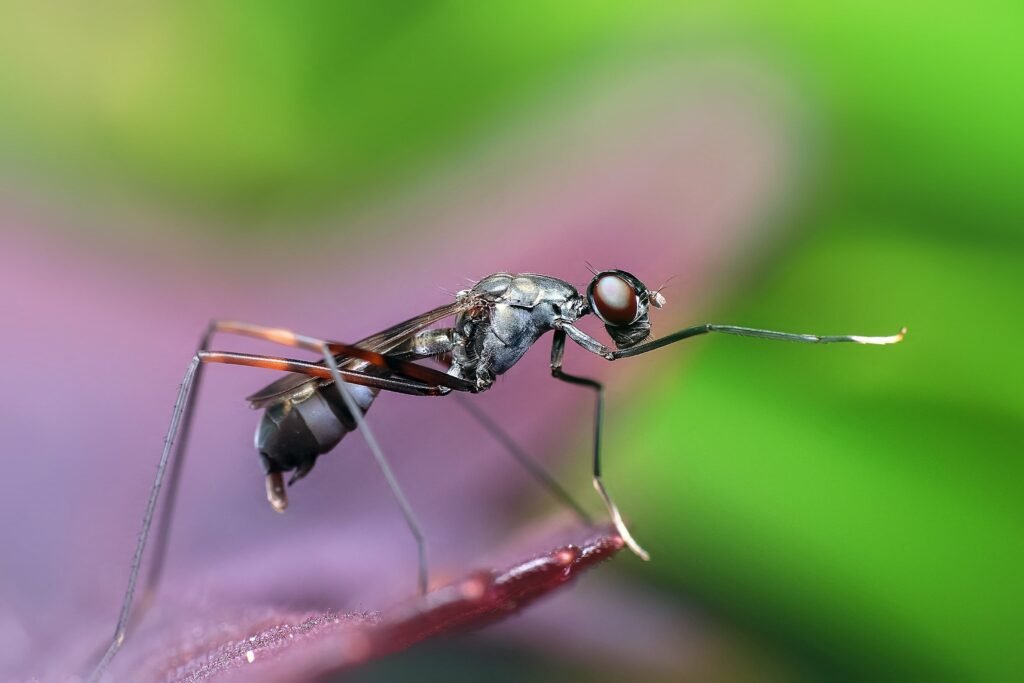
In the intricate dance of coffee cultivation, where each bean carries the promise of an aromatic revelation, the specter of pests can disrupt this delicate harmony. Welcome to the world of Organic Pest Control for Coffee – a battleground where nature’s defenders clash against invaders seeking to compromise the essence of your brew. Beyond the conventional arsenal, this guide delves into a strategic alliance between agriculture and environmental stewardship, offering a shield that transcends the ordinary.
Picture a coffee sanctuary where your beans flourish under the vigilant watch of eco-friendly guardians, ensuring a cup untainted by chemical residues.
As we unravel the complexities of this organic odyssey, discover how Organic Pest Control for Coffee not only safeguards your harvest but also nurtures a sustainable haven where every sip resonates with the purity of conscientious cultivation. Elevate your coffee experience – read on and immerse yourself in the art of cultivating beans unbound by the shackles of synthetic interventions.
Understanding the Importance of Organic Pest Control for Coffee
Organic pest control, a key constituent in the symbiotic relationship between flora and fauna, is imperative for the well-being of coffee crops. Unlike inorganic methods, it promotes ecological balance and biodiversity, curtailing the harmful effects of synthetic pesticides on the environment. Considering the global dependency on coffee and the crop’s susceptibility to pests, organic pest control is not just a choice, but a necessity.
Ecologically harmonious, organic pest control mitigates the risk of soil degradation, water pollution, and the indirect harm to non-target organisms, often caused by synthetic pesticides. It simultaneously fosters an environment conducive to the proliferation of beneficial insects and microbes. This not only fortifies the plants’ innate defences, but also enhances coffee quality and yield.
The Detrimental Impacts of Traditional Pest Control Methods
Traditional pest control methods, although sometimes effective, are plagued with a plethora of environmental and health related issues. Synthetic pesticides, for instance, have a knack for bioaccumulation and can percolate through soil into water sources, causing widespread ecological damage. Furthermore, their overuse has led to the evolution of ‘super pests’ that resist normal pesticide dosages, necessitating the use of even stronger, more harmful chemicals.
The human toll is equally egregious. Prolonged exposure to chemical pesticides can lead to a variety of health issues, ranging from skin and eye irritation to more serious conditions like cancer, neurological disorders and reproductive health problems. Farmers, consumers, and communities residing in close proximity to sprayed areas are particularly vulnerable.
Introduction to Organic Pest Management Strategies
Organic pest management strategies are a holistic approach to crop protection, primarily focusing on preventive measures. They revolve around fostering healthy soil for robust plant growth, which in turn, diminishes pest influence.
A diverse ecosystem is promoted, where beneficial microorganisms and insects thrive, naturally warding off pest populations.
Crop rotation, companion planting, and the use of pest-resistant coffee varieties are some of the fundamental techniques in organic pest management. These strategies not only curb pest populations, but also bolster overall crop health, enhance biodiversity, and sustain soil fertility.

The Art of Natural Pest Control in Coffee Farming
Natural pest control in coffee farming is more than a simple set of techniques. It is an art that requires knowledge of the ecosystem and a deep understanding of the intricate relationships between various organisms. It demands patience, finesse, and a commitment to the environment.
Biological control, one of the pillars of this art, involves introducing natural enemies of pests into the coffee plantation. These could be predatory insects, birds, or even fungi and bacteria that are harmful to pests. Another strategy is the use of plant-based biopesticides that deter pests without disrupting the ecological balance.
Top Organic Pest Control Techniques for Coffee Farmers
Intercropping, one of the preferred organic pest control techniques, involves planting other crops alongside coffee. This not only confuses the pests, but also attracts beneficial organisms that naturally control these pests. In a similar vein, trap crops can be grown around the plantation to lure pests away from the coffee crops.
Another promising technique is the use of biopesticides derived from natural sources like plants, bacteria, and minerals. These substances, though lethal to pests, are harmless to humans and have minimal environmental side effects. Organic farmers can also harness the power of the sun by using solarisation, a simple, yet effective technique that uses solar power to eliminate soil-borne pests and diseases.
DIY Solutions: Homemade Organic Pest Control Methods for Coffee

For small-scale coffee growers or DIY gardeners, homemade organic pest control options can be a cost-effective and safe bet.
A popular choice is the garlic-chilli spray, which deters pests due to its strong odour and spicy flavour. Similarly, a soap spray can be used to interrupt the life cycle of many pests.
Investing in a homemade compost pile is another recommended DIY solution.
Not only does it improve soil health, promoting stronger, more pest-resistant plants, it also introduces beneficial organisms into the ecosystem that naturally control pests.
Case Studies: Success Stories in Organic Pest Control for Coffee
There is a multitude of success stories in organic pest control for coffee. For instance, the community of Cauca in Colombia effectively utilised organic pest management strategies to combat coffee borer beetles. By introducing Beauveria bassiana, a natural fungus, they effectively controlled the pest without resorting to chemicals.
In another instance, a group of farmers in Chiapas, Mexico adopted organic farming practices and reported significantly healthier crops and higher yields. They used locally sourced biopesticides and natural pest predators, demonstrating that organic pest control is both viable and beneficial.
How to Implement Organic Pest Control in Your Coffee Farm
Implementing organic pest control in your coffee farm begins with a shift in mindset. Prioritise prevention over cure. Strengthen your plantation by cultivating a healthy, diverse ecosystem. Introduce natural predatory species, use organic fertilisers, and rotate crops to naturally deter pests.
Additionally, stay informed about the latest developments in organic pest control. Attend workshops, network with other organic farmers, and consult with agricultural extension services. Don’t forget to keep track of pest populations and monitor the effectiveness of your control measures so adjustments can be made as necessary.
Challenges and Solutions in Organic Pest Control Adoption
Adopting organic pest control practices is not devoid of challenges. The initial cost, potential short-term decrease in yield, and the steep learning curve can deter many. However, these challenges are dwarfed by the long-term benefits.
To mitigate these issues, farmers can start by incorporating organic practices into their existing operations gradually.
Government policies and subsidies can also facilitate this transition by offsetting initial costs. Furthermore, education and training programs can help farmers overcome the initial learning curve.

The Future Trends of Organic Pest Control in Coffee Industry
With increasing consumer awareness and a global push towards sustainability, the future of organic pest control in coffee looks bright. Biopesticides are expected to gain popularity as technological advancements make them more effective and accessible.
Moreover, precision farming, equipped with AI and data analytics, is set to revolutionize pest management by providing real-time pest monitoring and targeted organic treatment. The future will undoubtedly see an amalgamation of traditional organic practices with cutting-edge technology.
Cost-Benefit Analysis: Organic vs. Chemical Pest Control
While organic pest control may seem costly initially, the long-term benefits far outweigh the costs. Reduced health risks, long-term soil fertility, sustainable yields, and increased market value of organically grown coffee are significant payoffs.
Conversely, while synthetic pesticides may offer a quick fix and lower upfront costs, the long-term consequences, such as environmental degradation, health risks, and the emergence of pesticide-resistant pests, can be far more expensive to address.
Conclusion: The Way Forward in Organic Pest Control for Coffee

In conclusion, the sustainability and viability of the global coffee industry hinge on the adoption of organic pest control methods. As we move towards a future of increased environmental consciousness, organic pest control serves as more than just an alternative to traditional methods.
It represents a shift towards a more sustainable and responsible form of farming, one that respects and works with nature to produce better, healthier coffee. We must therefore, advocate for, educate about, and invest in organic pest control. The future of our coffee depends on it.